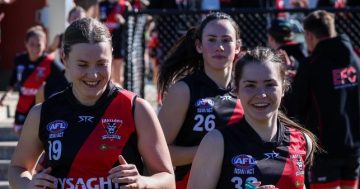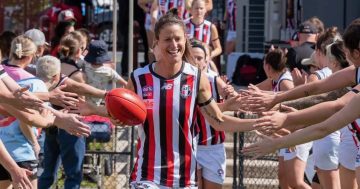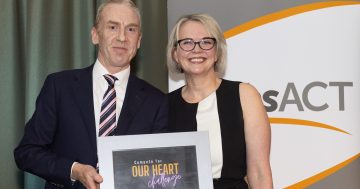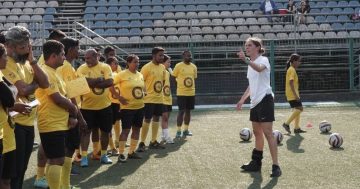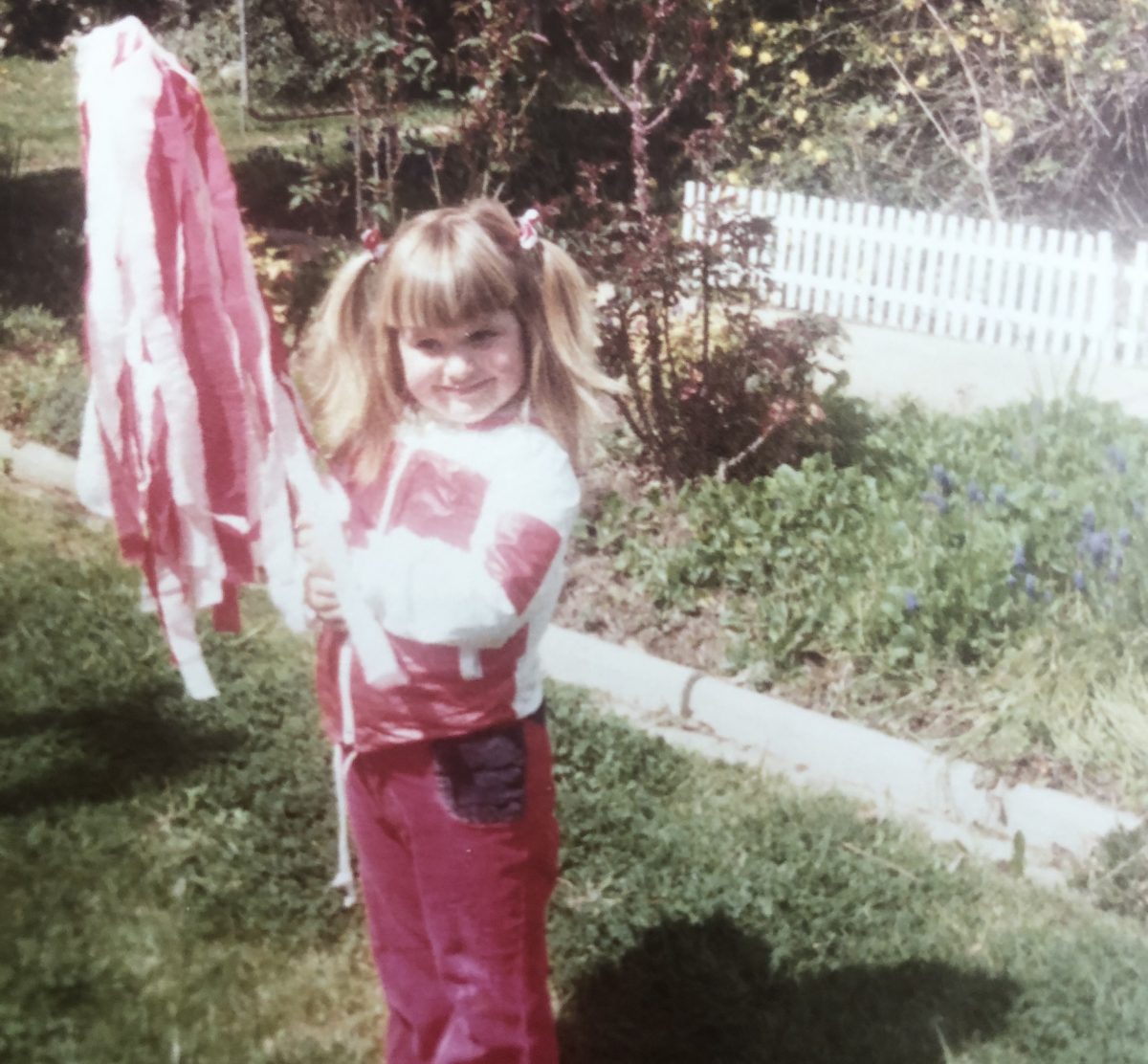
A young Jodie McEwan ready to support her dad in an Eastlake grand final. Photo: Jodie McEwan.
When Jodie McEwan was invited to join the Eastlake Football Group’s board of directors, she jumped at the chance.
Her role in public service made her comfortable in male-dominated roles in male-dominated industries – so only two things mattered.
“I love football and female representation on boards is an issue I feel strongly about,” she says.
“You can’t be what you can’t see, and women need to see themselves represented in all areas of life.”
Jodie’s family had had a long history with Eastlake. Her dad was a past premiership player and she had “practically grown up at the club”.
She says her invitation to join the board was very much part of a deliberate push by Eastlake to diversify.
“I think this kind of opportunity offers women a different experience to what they might do day to day, and to test them in different ways and to be exposed to different leadership styles in a context they might not necessarily be familiar with,” she says.
“It’s also an opportunity to speak on behalf of women in the organisation and provide, along with my public sector background, a female perspective in our discussions.”
Jodie says there are multiple benefits to the sports industry labouring for more board diversity.
“I think a lot of people assume the ‘female perspective’ means we bring emotional intelligence to the table, but the reality is the Eastlake board is already great that way,” she says.
“It’s about representation and younger people coming up in their careers and seeing what’s possible.
“At Eastlake we have a strong female football program, and I see part of my responsibility on the board as being outside of football; how do we guide those women in life?
“We want more women at our club –players and employees alike – to understand that these opportunities are open to them. But like any element of diversity in society – linguistic, gender, ability or otherwise – people must see themselves represented.”
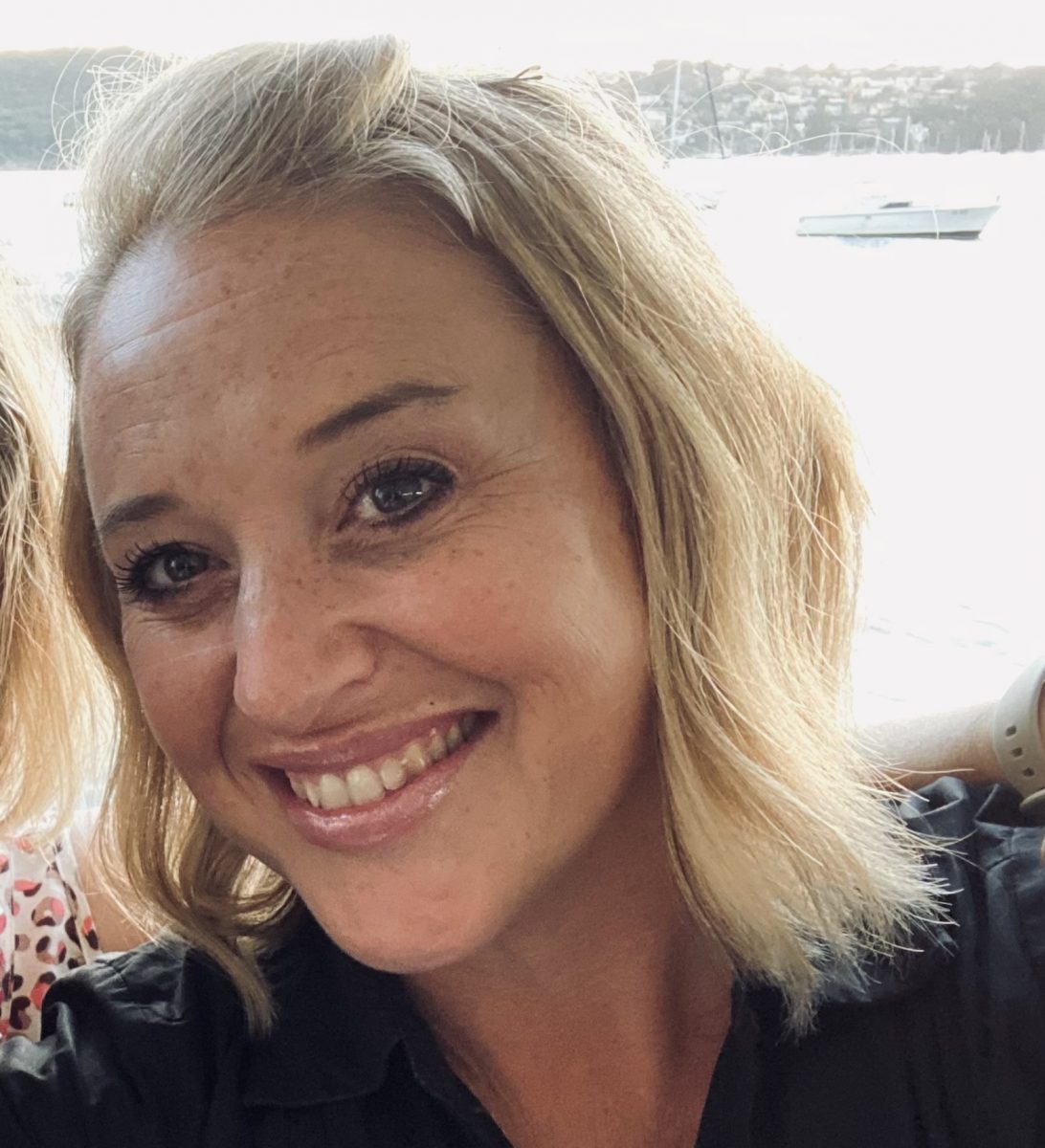
Today Jodie McEwan is a director on the Eastlake Group board. Photo: Jodie McEwan.
Jodie expects female representation in sports leadership will only get stronger generationally.
“There wasn’t much in the way of footy for girls growing up. I’m not here because of my football prowess,” she laughs.
“I think that’s the natural next step, though, for women in the game to move into leadership roles.
“We’ve seen the success of women’s AFL in competition – we will see more women with the lived experience of being a player, coach or umpire get involved with how the game is run in their areas.”
It’s a thought echoed by Eastlake Vice President Football Maureen Cahill.
“The Eastlake women’s program celebrates its 25th year of first grade football this year, and that has been our most successful in terms of the number of premierships contested and won,” she says.
“The culture here has been supportive of women in the program and through natural evolution, more women are stepping into decision-making roles.”
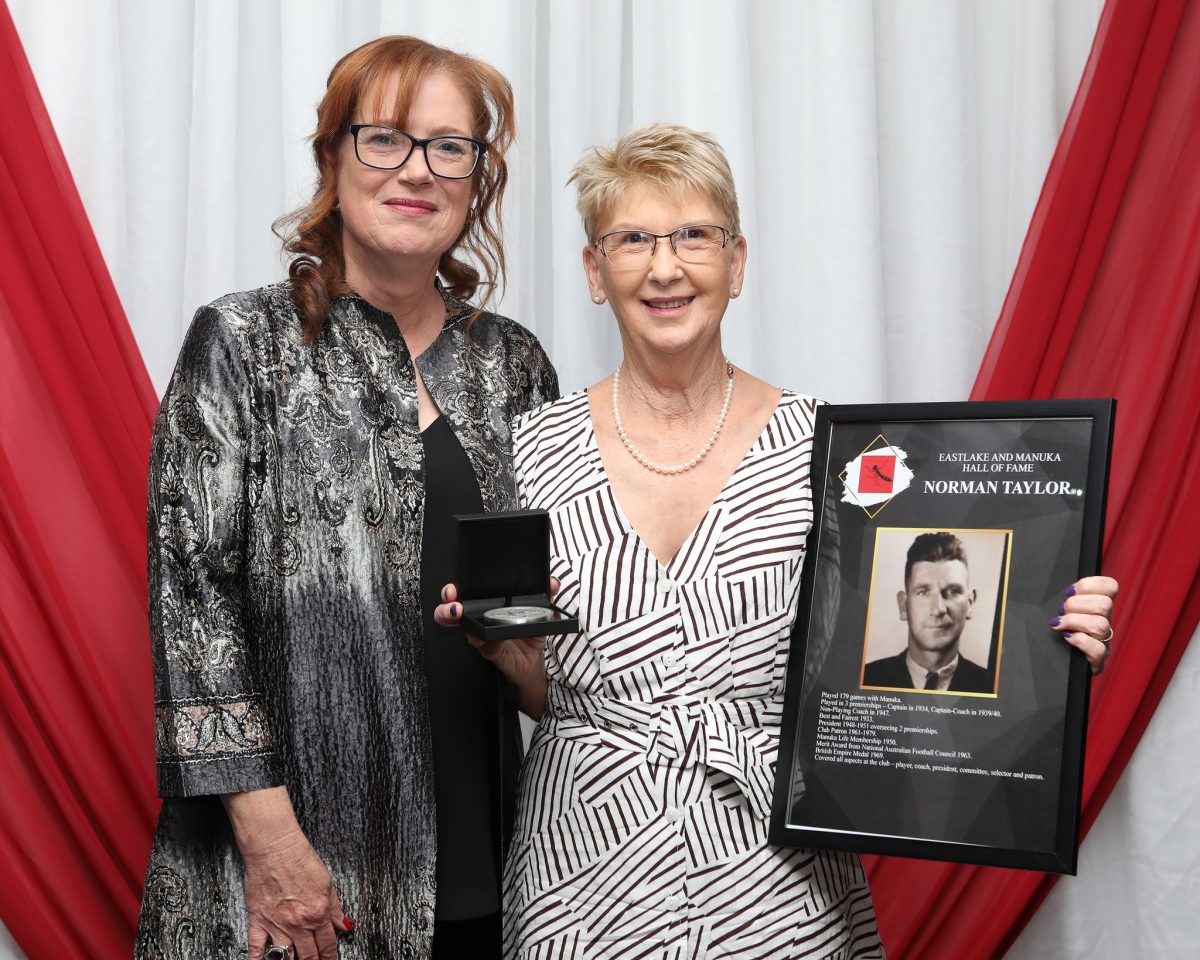
Maureen Cahill (left) presents an award to Vicki Brereton, daughter of late footballer Norman Taylor, at the inaugural Eastlake Hall of Fame event in May 2022. Photo: Eastlake Football Group.
She says it’s mutually beneficial for boards to make a conscious decision to actively seek diversity among members.
“Eastlake’s previous VP Brian Quade was very active in promoting and engaging the women’s program and was a strong advocate of diversity on boards,” she says.
“I’ve always been a fan of AFL, and Eastlake is a tremendous community club, so when he suggested I’d be a good fit for the role, it seemed a nice progression for me.
“Studies show that boards with diversity – in gender and other ways – are shown to have better decision making because they’re able to draw on a raft of perceptions and experiences.”
Jodie says while sports can be an intimidating space for women to “push themselves outside their comfort zone and accept something like a board position”, many women would find the job is, in fact, in their wheelhouse.
“I think most women would find the problem-solving that goes on at board level, decision-making around people and the operations of football, clubs and programs, is naturally suited to how women think,” she says.
“There’s so much you can offer but also for you to walk away with in terms of growth.”












